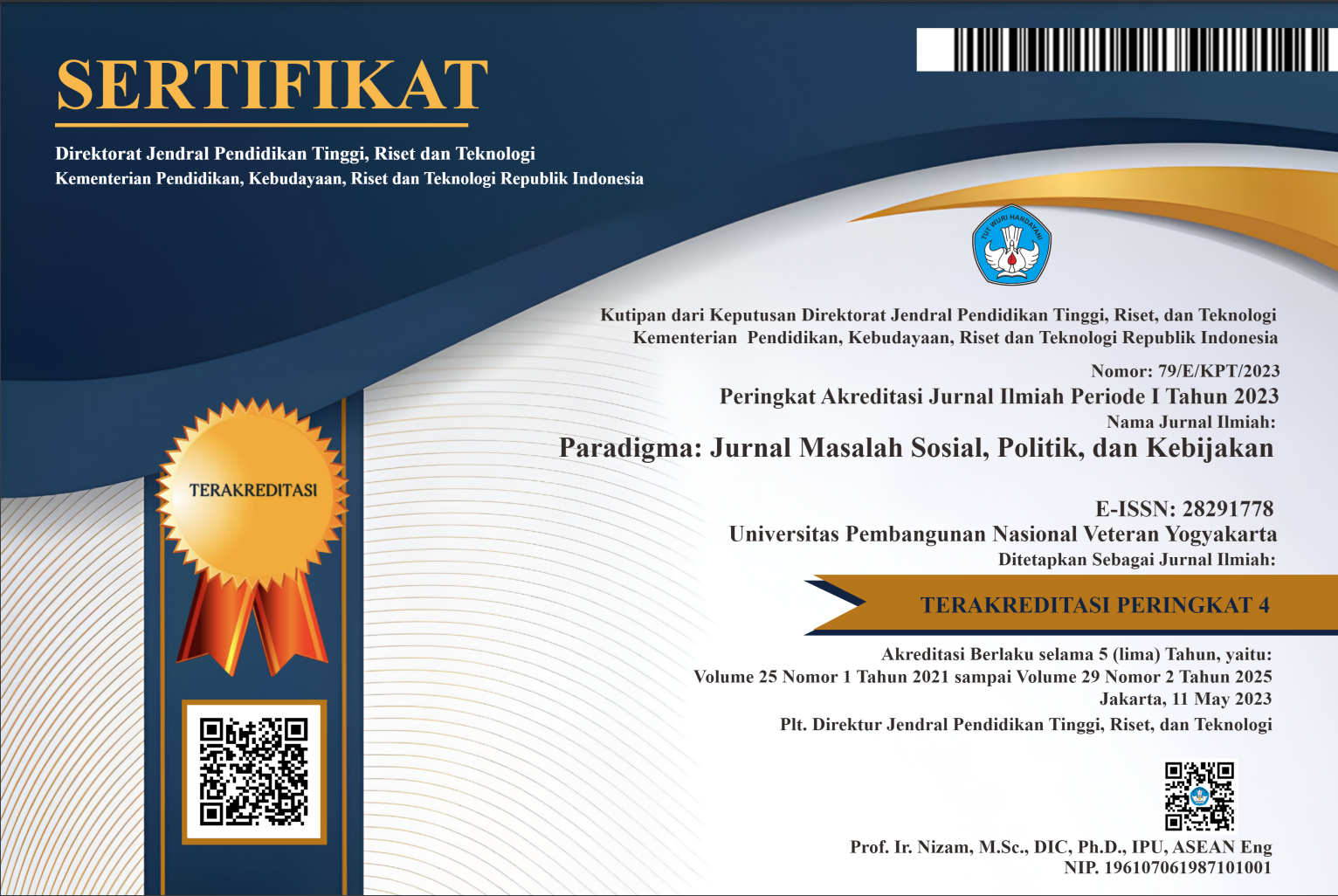Analisis Kesuksesan Inkubator dan Akselerator Bisnis Dalam Membangun Startup
Abstract
Keywords
Full Text:
PDF (Bahasa Indonesia)References
Bakhar, M., Harto, B,. Gugat, Rudy M. D., Hendrayani, E., Setiawan, Z., Suriyanto, Dewi F., Salam, M. F., Suraji, Aji., Sukmariningsih, R. M., Sopiana, Y., Yusuf, M., Nugroho, W. E., dan Tampubolon, Lely P. D. (2023). Perkembangan Startup avit
Clarysse, B. & Yusubova. A. (2016). Success factors of business accelerators in three European cities : Paris, London, Berlin. Journal entrepreneurship and business
Colis, D, (2016) Lean Strategy, In Industrial engineering Online, Harvard Business Review, Vol. 35
Dempwolf, C. S., Auer, J., & D’ippolito, M. (2014), Innovation Accelerators: Defining Characteristics Among Startup Assistance Organizations. London: Optimal Solution Group, LLC
Dwi Rahmadiane, G., Unggul, E., Utami, S., & Anggraeni, T, (2022), Analisis Pertumbuhan Startup Bisnis di Kota Tegal, Managament Insight: Jurnal Ilmiah Manajemen ISSN, 17(2), 152–160
Grant, R.M., 1991. The resourcebased theory of competitive advantage, implications for strategy formulation. California Management Review, Spring, 114–135.
Habiburrahman, Prasetyo, A., Raharjo, T. W., Rinawati, H. S., Trisnani, Eko, B. R., Wahyudiyono, Wulandari, S. N., Fahlevi, M., Aljuaid, M., & Heidler, P. (2022), Determination of Critical Factors for Success in Business Incubators and Startups in East Java, Sustainability (Switzerland), 14(21).
Hardiansyah, R., & Tricahyono, D, (2019), Identifikasi Faktor-Faktor Kesuksesan Start Up Digital di Kota Bandung, Jurnal Ekonomi, Vol. 27, Hal. 134 - 145
Hardani dkk.. 2020. Metode Penelitian Kualitatif dan Kuantitatif. Yogyakarta: CV Pustaka Ilmu Group Yogyakarta
Mahani, S. A. E, (2019), Kinerja Pendampingan Usaha Rintis Binaan Pada Orangenest Incubiz. Jurnal Manajemen Dan Bisnis Performa, 16(1), 16–28
Prasetiawan&Tricahyono, D. (2017), The exploration of ınfluential factors toward competitive advantage on digital application startup: case study on ındigo ıncubator program of telkom. ISCLO, 17, hh. 193-209
Sugiyono, P. D. (2018). Metode Penelitian Bisnis. Bandung: Penerbit Alfabeta.
Syauqi, A. T (2016), Startup Sebagai Digitalisasi Ekonomi dan Dampaknya bagi Ekonomi Kreatif di Indonesia, Department of Electrical Engineering and Information Technology
Thu, Trang Nguyen (2018), How Do The Startup Accelerators Help The Start-ups To Scale?, Centria Univesity of Applied Sciences, Hal. 42
Winosa, Y. 2019. Ini Alasan 90 Persen Startup di Indonesia Gagal. https://wartaekonomi.co.id/read215393/ini-alasan-90-persen-startup-di-indonesia-gagal. Diakses pada 13 Maret 2023.
Wit, B., Dresler, P., & Surma-Syta, A. (2021a). Innovation in start-up business model in energy-saving solutions for sustainable development. Energies, 14(12).
DOI: https://doi.org/10.31315/paradigma.v28i1.9934
Refbacks
- There are currently no refbacks.
Copyright (c) 2024 Karina Yunika, Ida Susi Dewanti, Didik Indarwanta

This work is licensed under a Creative Commons Attribution-ShareAlike 4.0 International License.
Paradigma: Jurnal Masalah Sosial, Politik, dan Kebijakan
Published by Faculty of Social Science and Political Science
Universitas Pembangunan Nasional "Veteran" Yogyakarta
(Kampus Unit II) Jl. Babarsari 2, Tambakbayan, Depok, Yogyakarta 55281
Phone: +62 274 486733. Email: paradigma@upnyk.ac.id

This work is licensed under a Creative Commons Attribution-ShareAlike 4.0 International License.



